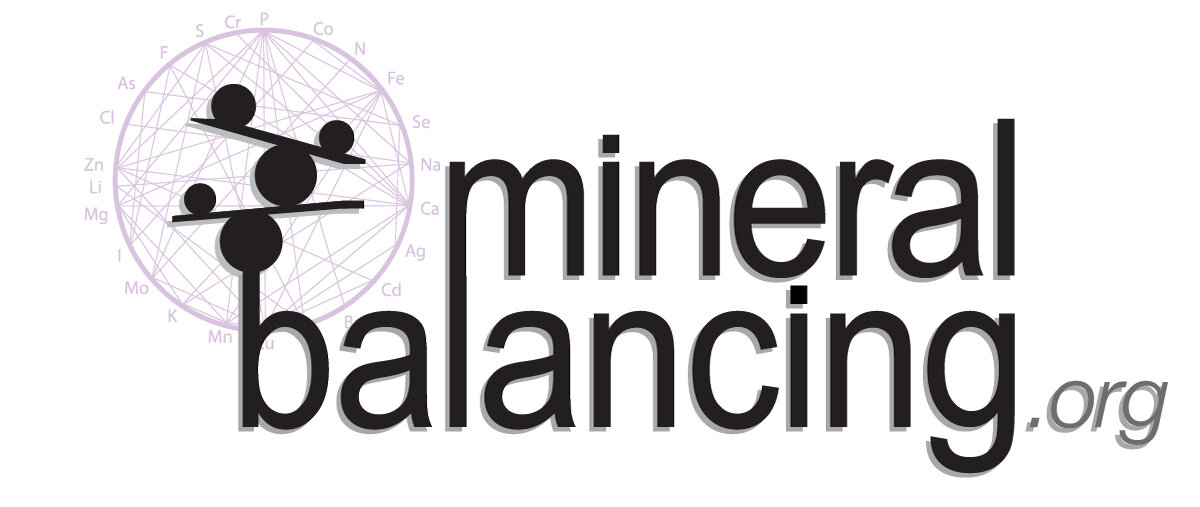Renamide
Vitamin C • Magnesium • Manganese • Carbamide
• Uva ursi • Freeze-dried bovine kidney.
Renamide is a glandular product distributed by Endomet Laboratories, that can be recommended as part of a Mineral Balancing Program. It is typically used for both Fast and Slow oxidisers to help support the kidney, and it is very helpful for those in a Four Low Pattern.
Since this product supports the kidney, it can be beneficial for those in adrenal insufficiency, which is indicated as low sodium and potassium level on an unwashed Hair Tissue Mineral Analysis (HTMA). Since the kidney and the adrenal glands are connected physically, when one of them requires sustenance, the other is often in need as well.
Renamide can increase sodium levels which can correct a low Na/K ratio (inversion). An inversion on an HTMA is often correlated with various overgrowths of microorganisms (Analytical Research Labs), in particular urinary tract infections or other infections (Ahmad-Reza Gohari, 2014).
Common indications for an increased need for kidney support include:
Hypertension (high blood pressure)
Back pain, in particular the mid and lower areas of the spine.
Oedema or swelling of the ankles or legs
Bladder and kidney infections
Urinary tract infections (Susana Garcia de Arriba, 2013; M Moore, 2019)
Uva ursi
The herb found in Renamide is uva ursi leaf, which is sometimes called bearberry leaf, has been used traditionally for urinary tract infections, inflammation, bladder and kidney stones, and venereal disease. It contains a compound named arbutin (E V Chukarina, 2007). When uva ursi is ingested, enzymes in the digestive tract convert arbutin into hydroquinone.
Hydroquinone is effective:
As an antimicrobial (Karlo Jurica, 2017)
For preventing oxidative damage (Khadir, 2015),
Lowering inflammation (H Matsuda, 1991),
As an anticarcinogenic compound (Jiraporn Nawarak, 2009), and
For protecting nerve cells (Seyed Raheleh Ahmadian, 2019)
Other compounds found in uva ursi, such as corilagin, has also been shown to have similar effects as hydroquinone. Corilagin is an astringent and contains antibacterial and antiviral (Yuan-Jin Guo, 2010) properties which may be one reason why uva ursi has been used for so long for urinary tract infections (Yarnell, 2002), as well as other infections. Corilagin has also been found to show good anti-tumour activity on hepatocellular (liver) carcinoma and ovarian cancer (Xuan Li, 2018).
Conclusion
Renamide is a supportive supplement which helps the body maintain a healthy ecological balance of microorganisms while preventing oxidative damage and lowering inflammation. Due to current modern lifestyles, people are often exposed to excessive oxidative damage from factors which increase our stress. Renamide also contains freeze-dried kidney that helps to promote healthy kidney function, which we have found it to be an important add-on that is needed for nearly every person. This is especially the case when our body is detoxifying heavy metals, the kidney can become overburdened and may require additional support.
References
Ahmad-Reza Gohari, S. S. (2014). The role of herbal medicines in treatment of urinary tract diseases. J Nephropharmacol, 1(3), 13-14. Retrieved from https://pubmed.ncbi.nlm.nih.gov/28197453/
Analytical Research Labs. (n.d.). https://arltma.com/newsletters/candida-albicans/. Retrieved from ARLTMA: https://arltma.com/newsletters/candida-albicans/
E V Chukarina, A. M. (2007). [Quantitative determination of arbutin and hydroquinone in leaves of Arctostaphylos, Vaccinium vitis-idaea, and the plant preparations]. Vopr Pitan, 76(3), 82-7. Retrieved from https://pubmed.ncbi.nlm.nih.gov/17674527/
H Matsuda, T. T. (1991). [Pharmacological studies on leaf of Arctostaphylos uva-ursi (L.) Spreng. III. Combined effect of arbutin and indomethacin on immuno-inflammation]. Yakugaku Zasshi, 253-8. Retrieved from https://pubmed.ncbi.nlm.nih.gov/1875280/
Jiraporn Nawarak, R. H.-L.-H.-H.-T.-L. (2009). Proteomics analysis of A375 human malignant melanoma cells in response to arbutin treatment. Biochim Biophys Acta, 1794(2), 159-67. Retrieved from https://pubmed.ncbi.nlm.nih.gov/18996230/
Karlo Jurica, I. G. (2017). Arbutin and its metabolite hydroquinone as the main factors in the antimicrobial effect of strawberry tree (Arbutus unedo L.) leaves. Journal of Herbal Medicine, 8, 17-23. Retrieved from https://www.sciencedirect.com/science/article/abs/pii/S2210803317300209
Khadir, F. P. (2015). The effect of arbutin on lipid peroxidation and antioxidant capacity in the serum of cyclosporine-treated rats. Caspian J Intern Med., 6(4), 196-200. Retrieved from https://www.ncbi.nlm.nih.gov/pmc/articles/PMC4649267/
M Moore, J. T. (2019). Uva-ursi extract and ibuprofen as alternative treatments for uncomplicated urinary tract infection in women (ATAFUTI): a factorial randomized trial. Clin Microbiol Infect., 25(8), 973-80. Retrieved from https://pubmed.ncbi.nlm.nih.gov/30685500/
Seyed Raheleh Ahmadian, M. G.-K. (2019). Arbutin attenuates cognitive impairment and inflammatory response in pentylenetetrazol-induced kindling model of epilepsy. Neuropharmacology, 1(146), 117-27. Retrieved from https://pubmed.ncbi.nlm.nih.gov/30503994/
Susana Garcia de Arriba, B. N.-U. (2013). Risk assessment of free hydroquinone derived from Arctostaphylos Uva-ursi folium herbal preparations. Int J Toxicol, 32(6), 442-53. Retrieved from https://pubmed.ncbi.nlm.nih.gov/24296864/
Xuan Li, Y. D. (2018). Corilagin, a promising medicinal herbal agent. Biomed Pharmacother, 99, 43-50. Retrieved from https://pubmed.ncbi.nlm.nih.gov/29324311/
Yarnell, E. (2002). Botanical medicines for the urinary tract. World Journal of Urology volume, 20, 285-93. Retrieved from https://link.springer.com/article/10.1007/s00345-002-0293-0
Yuan-Jin Guo, L. Z.-F.-W.-L.-Y.-H. (2010). Effect of Corilagin on anti-inflammation in HSV-1 encephalitis and HSV-1 infected microglias. European Journal of Pharmacology, 635(1-3), 79-86. Retrieved from https://www.sciencedirect.com/science/article/abs/pii/S0014299910001949

